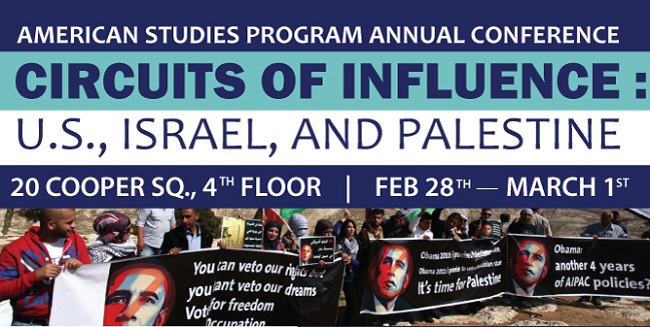Rumor has it that the American Studies Association is going down in flames.
Since our membership voted by a 2 to 1 margin last fall to join the academic boycott of Israeli universities, the mainstream and tabloid press have trumpeted denunciations of ASA by over 200 university presidents, prestigious organizations including the AAUP, and legislators in several states and the US Congress. In the frame of the corporate public sphere of news commentary, ASA appears to many as isolated and reviled.
But this reflection captures only a small, distorted portion of the surprisingly broad public impact of our boycott. For a little band of about 4000-5000 scholar-nerds, we’ve made a rather astonishing splash in the widening pool of support for the Palestinian call for boycott, divestment and sanctions against Israel.

At the same time that these breakthroughs were made amidst the hostile hubbub (and in the face of an avalanche of hate mail), ASA itself has been growing and prospering. We have over 700 new members, and have raised more revenue in the quarter from December 2013 to April 2014 than in any quarter in the last 25 years. Statements of support have poured in from around the world, as well as from the American Studies faculty and students at institutions where the president has denounced us. Proposals for the fall 2014 conference flooded in at the usual level, including plans to bring both Israeli and Palestinian scholars to Los Angeles to join us. We have so far beat back legal and legislative threats with the help of Jewish Voice for Peace, and with pro bono legal representation from Palestine Solidarity Legal Services attorneys affiliated with the Center for Constitutional Rights.
Far from teetering on the edge of destruction, we are flourishing.
One of the most important ways that we flourish is through continuing the scholarly and political conversations that led us to the boycott vote. When the American Studies Program at New York University planned our March 1 conference, Circuits of Influence: U.S., Israel, and Palestine, the goal was to pick up these conversations, raise new questions, and open related lines of inquiry in the aftermath of the boycott vote. Planned primarily by graduate students, Circuits of Influence was designed to proceed from the starting point of the boycott resolution. The program brought together more than a dozen scholars, public intellectuals and activists whose thinking is represented in this issue of Periscope. Joined by ASA President Curtis Marez, and Association of Asian American Studies member Loubna Qutami, these writers represent directions of research, analysis, and action channeled through and coming out of the ASA boycott vote.
Occurring after years of discussion and debate at national conferences, meetings, periodicals and journals, the vote was one moment in the long struggle of Palestinians against the Israeli settler colonial state.
This Periscope is a next moment, leading on to a further expansion of international support for this ongoing Palestinian political labor. Contributions to this issue by Riham Barghouti, and by Amin Husain, Nitasha Dhillon, and Yates McKee writing as Tidal, lay out the call for BDS to which ASA responded, and outline the present and future possibilities of this effort. Loubna Qutami puts the “single story” of BDS into context as one mode of solidarity among the many that are necessary to build meaningful and long lasting alliances. ASA President Curtis Marez examines the attacks on the ASA boycott through the lens of Zionist outreach to US Latinos asked to identify with Israelis rather than Palestinians. A.J Bauer, one of the graduate student organizers of Circuits of Influence, extends this analysis of the backlash via his dissection of the (il)logic of the furious Zionist response to our little confab. Manijeh Nasrabadi and Dean Saranillio outline new directions in American Studies scholarship that have led the field to engage with calls for Palestinian liberation, highlighting the history of Afro-Asian and Afro-Arab exchanges (Nasrabadi) and new scholarship on settler colonialism (Saranillio). Salah Hassan, Samera Esmeir and Lisa Hajjar historicize the current conjuncture. Hassan provides a history of popular boycotts beginning with anticolonial 19th century Ireland. Esmeir examines the implications of placing the history of Israel and Palestine within a framework of war and peace treaties, rather than within the context of colonial occupation. Hajjar looks at the long interaction between the U.S. and Israel in the realm of law. Alex Lubin and Robin D.G. Kelley leave us with a consideration of Israeli/Palestinian relations within the framework of global capitalism. Lubin treats the Oslo peace process as an example of U.S. led neoliberal governance, while Kelley gleefully points out how vitriolic attacks on boycotts fly in the face of purported “free market” principles. He concludes with the proviso, appropriate for closing this issue: “This is why boycotts must be international. They must expose the world to the flagrant violations of human rights and international law, and the absurd and twisted logic of those who claim boycott as a form of bullying, when, in fact, it is the opposition that has launched a vicious campaign to slander and silence the BDS movement.”
A campaign that, it is worth noting, is failing.
Lisa Duggan is Professor of Social and Cultural Analysis at New York University, and author of several books including Twilight of Equality: Neoliberalism, Cultural Politics and the Attack on Democracy.


